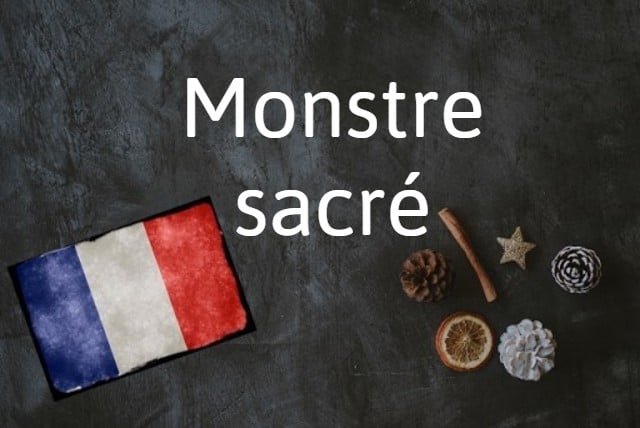Why do I need to know monstre sacré?
Because it’s a widely used phrase in France, especially during times of great public emotion.
What does it mean?
You might expect this to mean ‘sacred monster’ and it’s true that un monstre is a monster and sacré generally translates as sacred, but taken together as a phrase it has a very different meaning.
Someone who is given the title of un monstre sacré is a public figure who is striking, unusual or cherished. In English you might call them a superstar, an icon or a national treasure.
If you have been following the news coverage of the death of French screen superstar Jean-Paul Belmondo you are likely to have seen this phrase used a lot to describe his iconic status.
Jean-Paul Belmondo, monstre sacré du cinéma français, est mort à l'âge de 88 ans#Belmondohttps://t.co/kgqcQ6WJXW
— France Bleu Occitanie (@bleuoccitanie) September 6, 2021
Monstre sacré du cinéma, #Belmondo est parti jouer son rôle éternel… Tchao bebel! pic.twitter.com/bsfscNBji7
— Coralie Pirez-Moysan (@coraliemoysan) September 7, 2021
Although sacred or holy is the primary meaning of sacré it has other uses including to be ‘crowned a winner’ often in a sporting sense, and it can also be used to add emphasis to what you are saying – click here for alternative uses of sacré.
Use it like this
L’acteur Jean-Paul Belmondo était un vrai monstre sacré du cinéma français – The actor Jean-Paul Belmondo was a true icon of French cinema
Il n’est pas très connu en France, mais il est un monstre sacré en Angleterre – He’s not very well-known in France, but he is a national treasure in England



 Please whitelist us to continue reading.
Please whitelist us to continue reading.
Member comments